REVISION NOTES
7.2.1 Know that nuclear reactions, including fission, fusion and radioactive decay, can be a source of energy
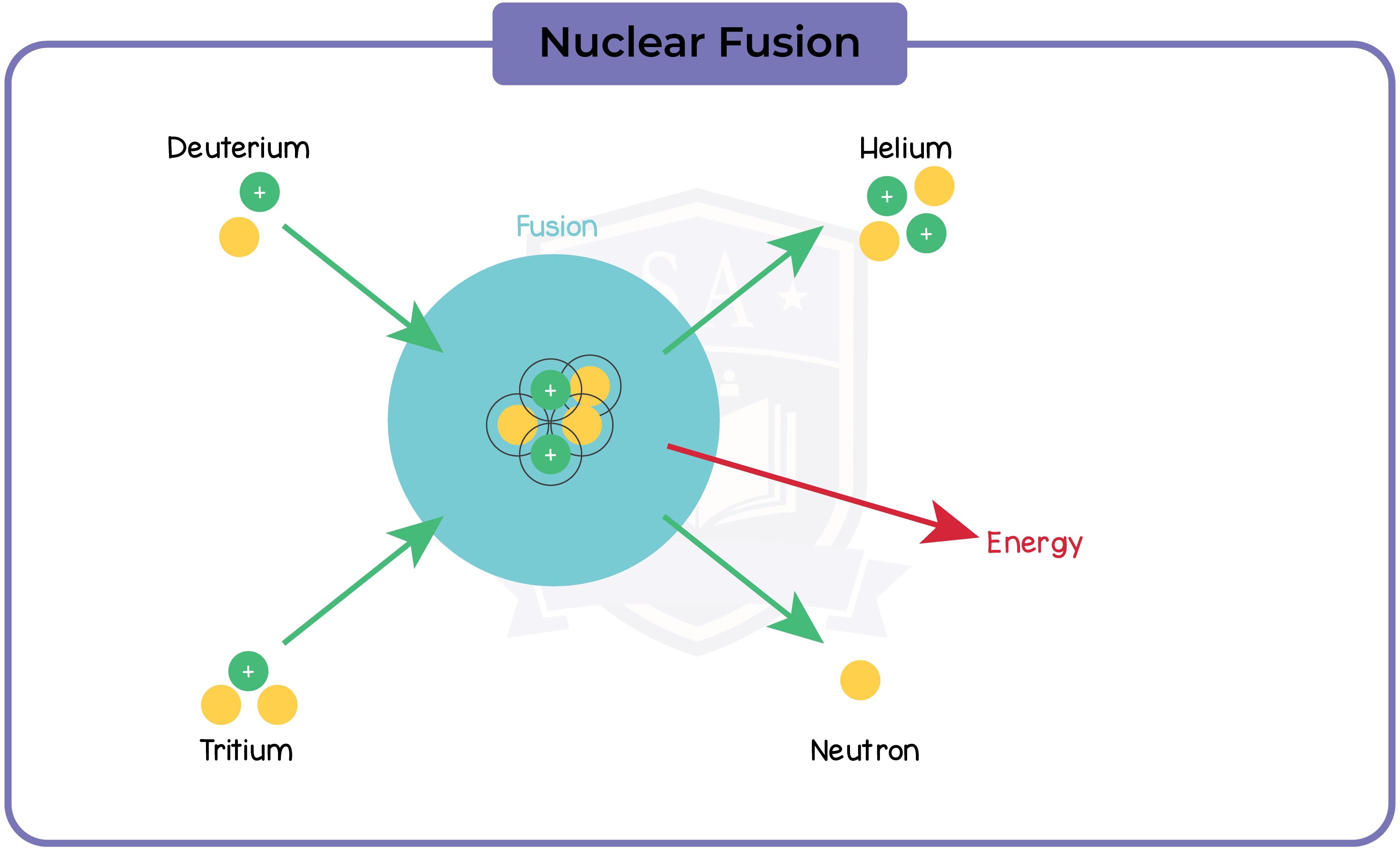
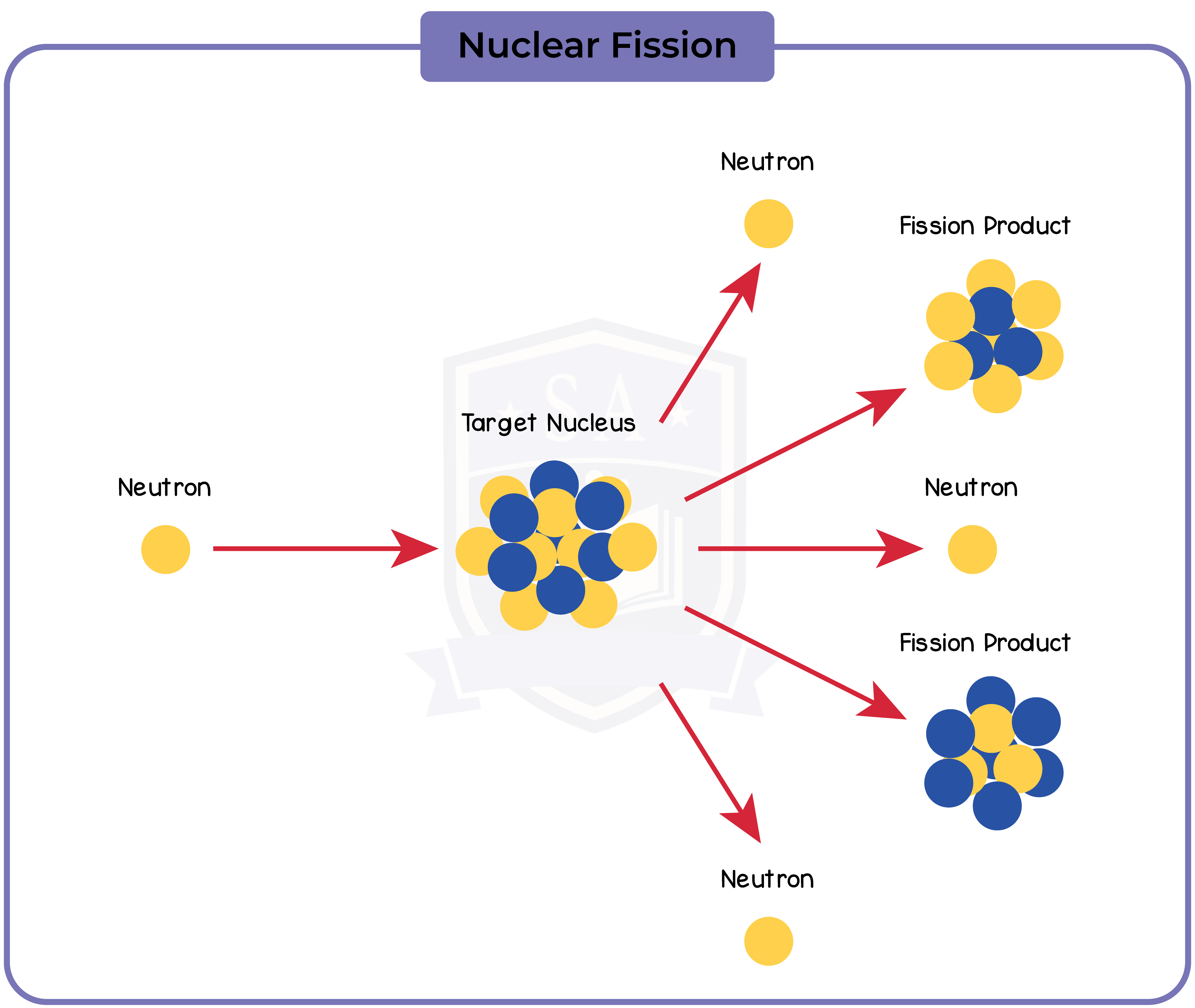
7.2.2 Understand how a nucleus of U-235 can be split (the process of fission) by collision with a neutron and that this process releases energy as kinetic energy of the fission products
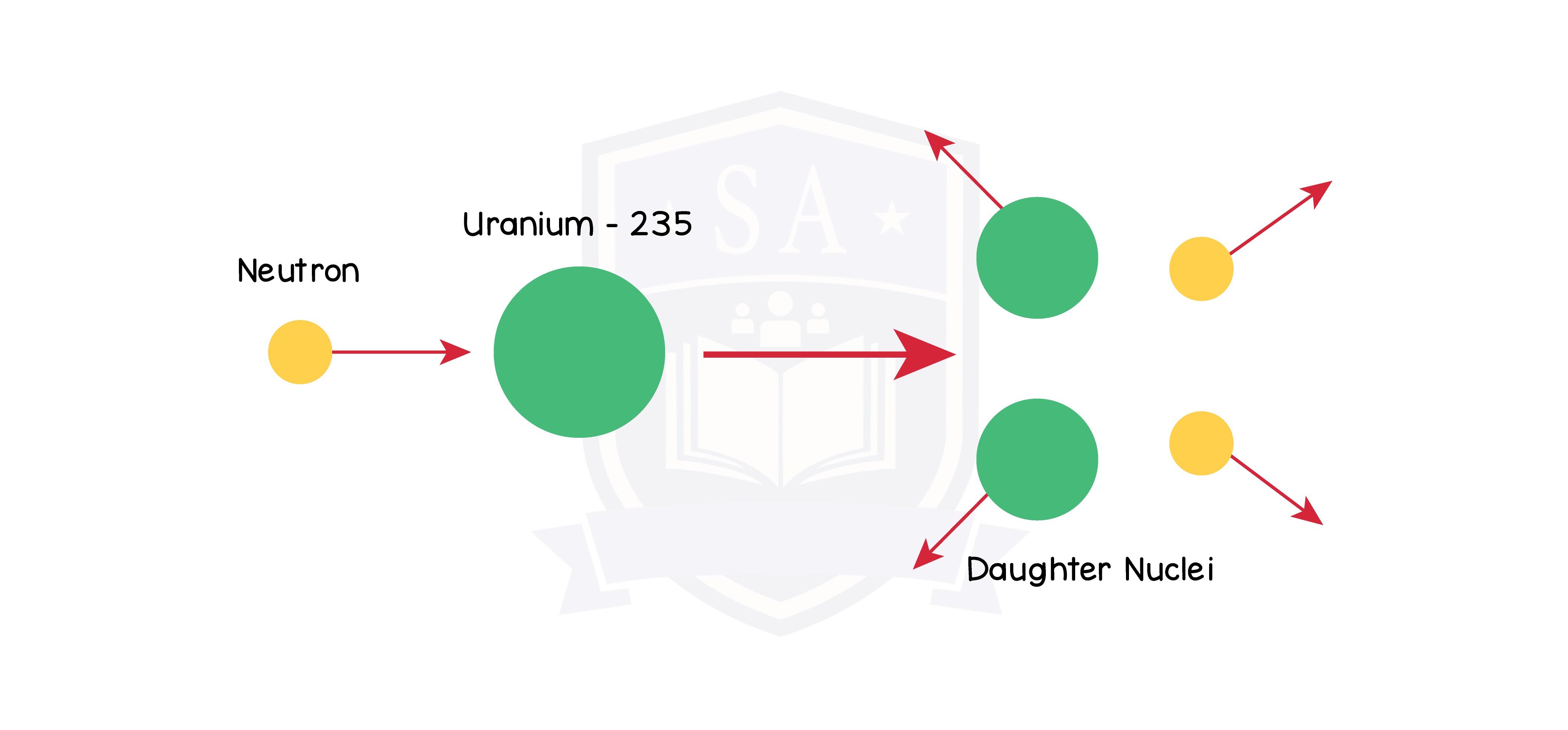
7.2.3 Know that the fission of U-235 produces two radioactive daughter nuclei and a small number of neutrons
7.2.4 Describe how a chain reaction can be set up if the neutrons produced by one fission strike other U-235 nuclei
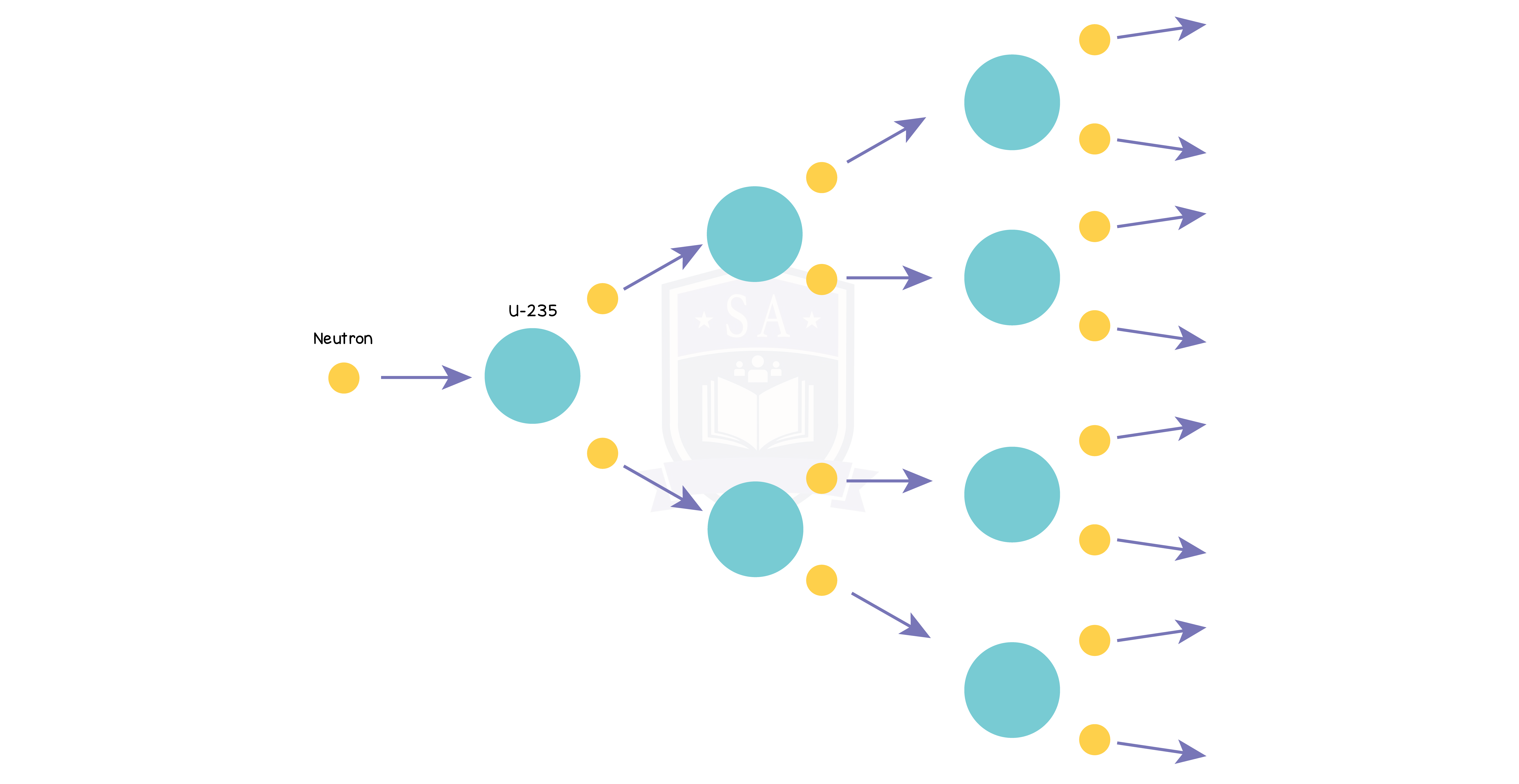
7.2.5 Describe the role played by the control rods and moderator in the fission process
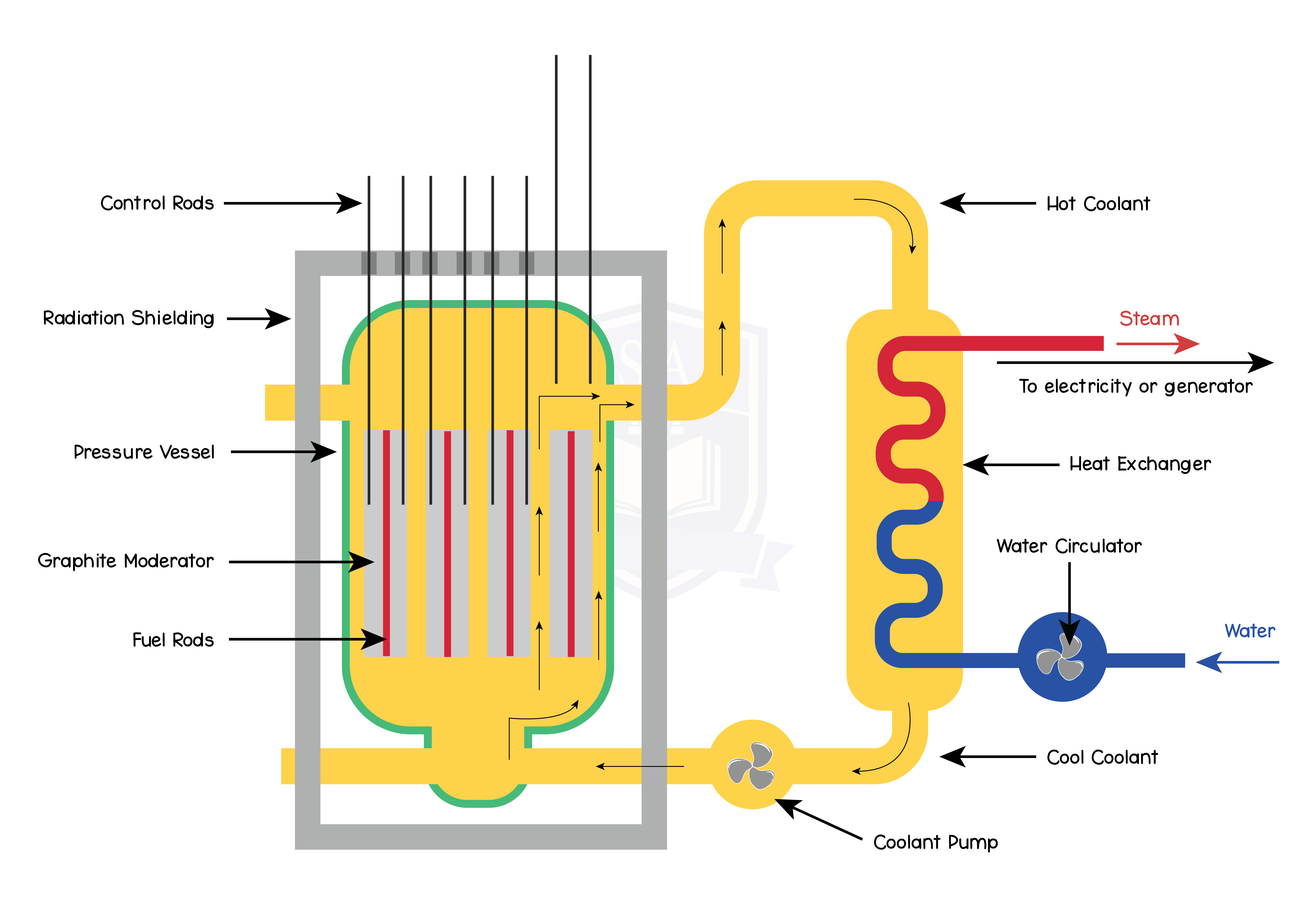
7.2.6 Understand the role of shielding around a nuclear reactor
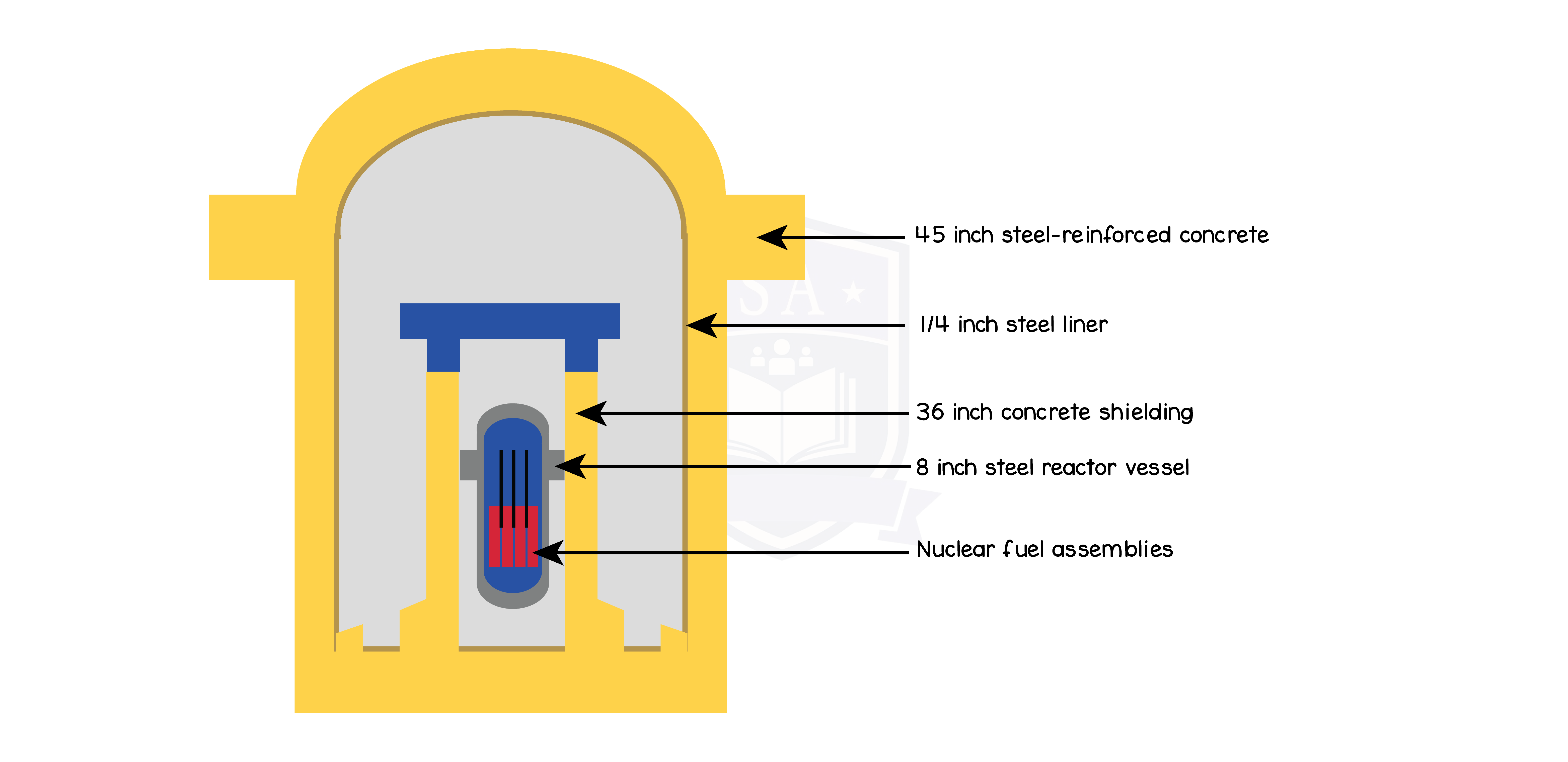
7.2.7 Explain the difference between nuclear fusion and nuclear fission
7.2.8 Describe nuclear fusion as the creation of larger nuclei resulting in a loss of mass from smaller nuclei, accompanied by a release of energy
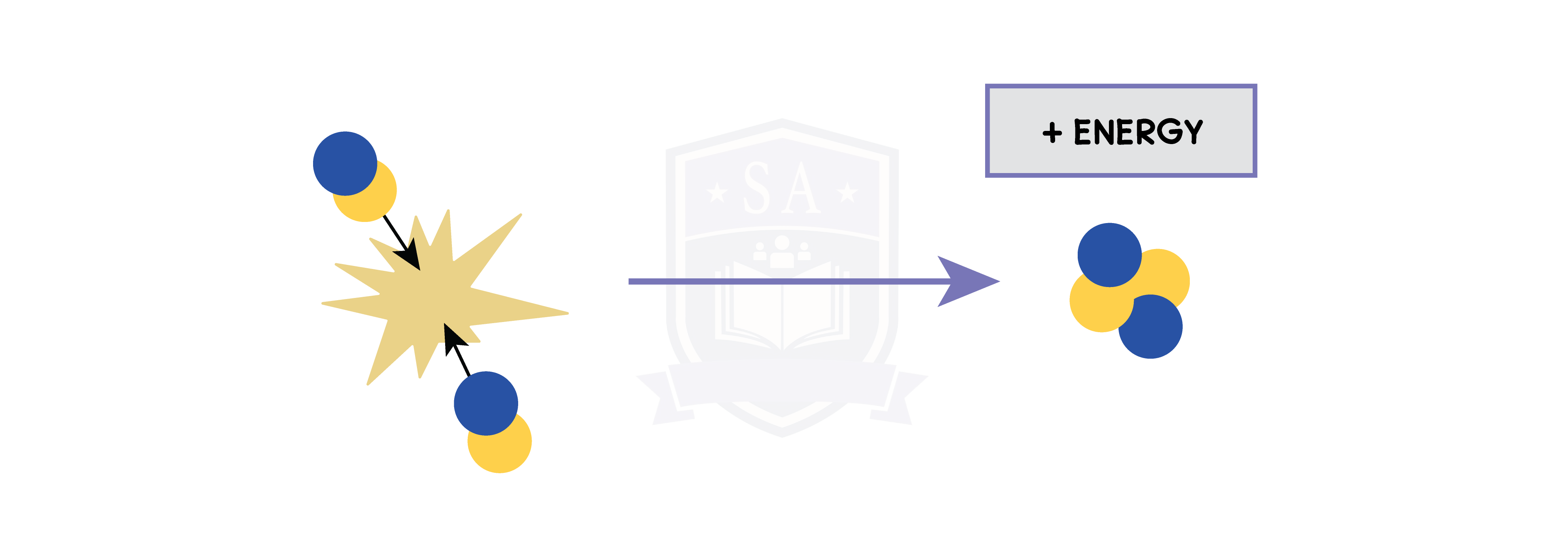
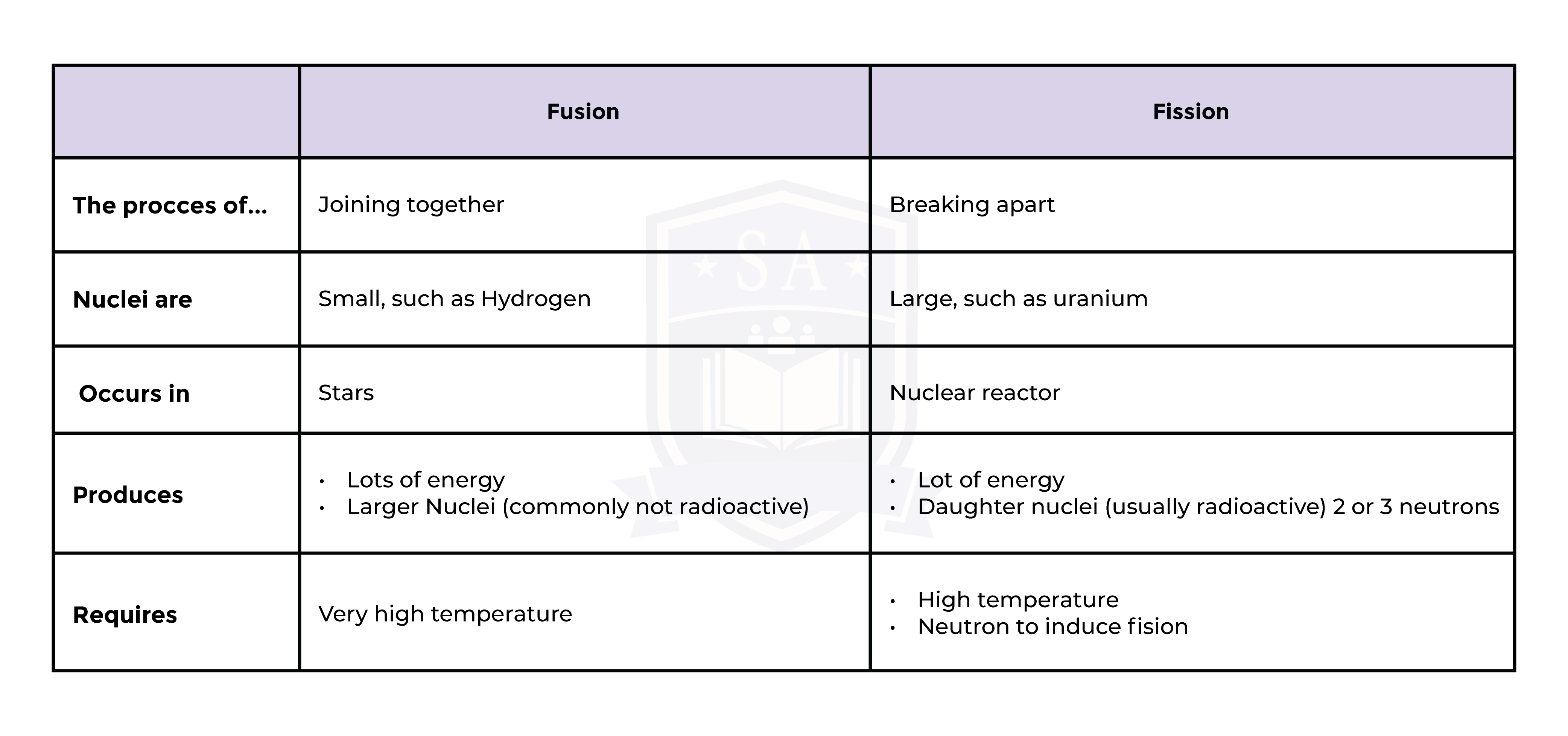
7.2.9 Know that fusion is the energy source for stars
7.2.10 Explain why nuclear fusion does not happen at low temperatures and pressures, due to electrostatic repulsion of protons

© 2025 Studia Academy. All rights reserved.